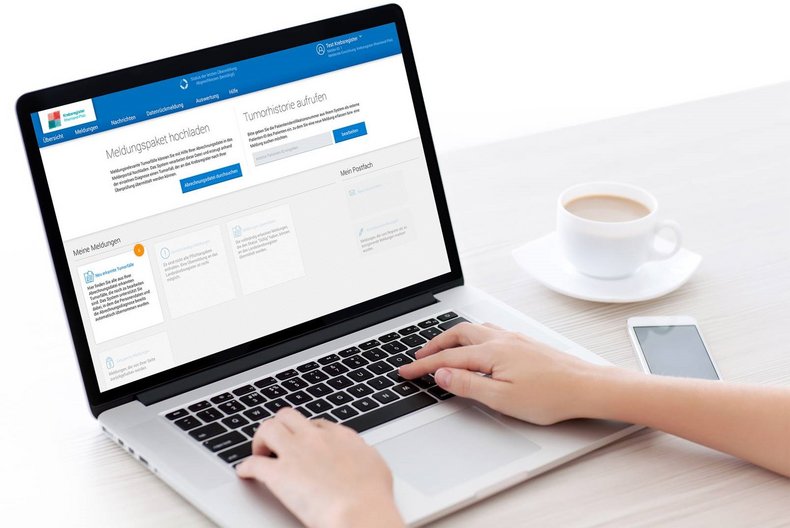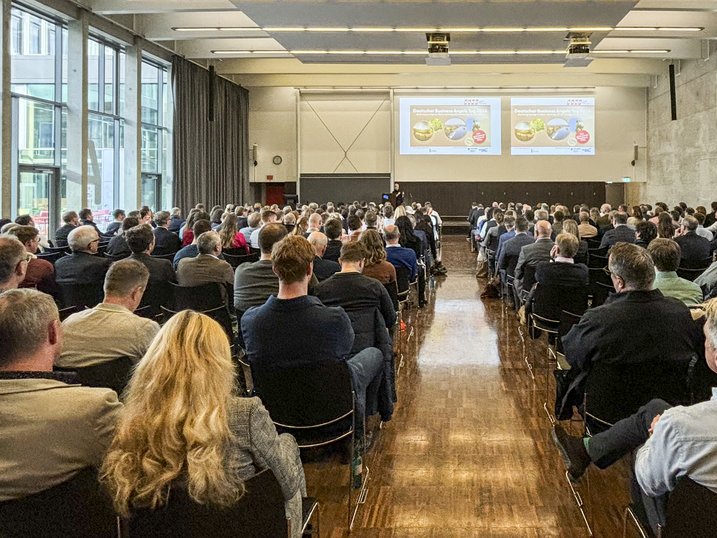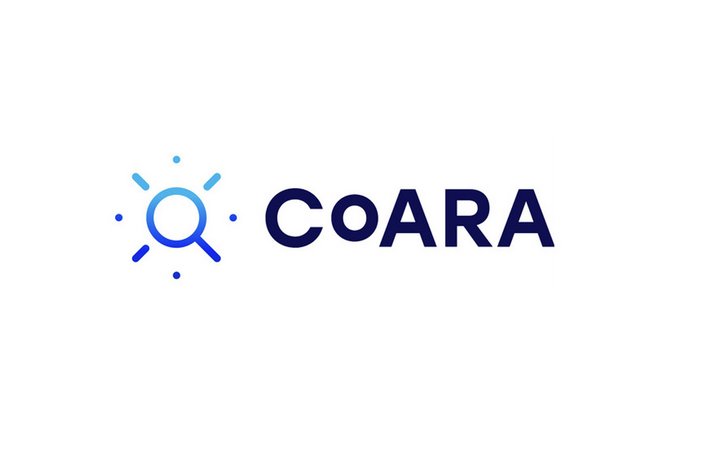The Institute for Digital Health Data RLP and Mainz University of Applied Sciences collaborate to provide a user-friendly reporting portal for physicians working in oncology
To make it as easy as possible for physicians working in oncology to fulfill their reporting obligations, the Cancer Registry Division of the IDG Institute for Digital Health Data RLP had its digital reporting portal analyzed in a scientific usability study. Together with Mainz University of Applied Sciences and the Clinical Cancer Registry of Lower Saxony, a large-scale survey was conducted with physicians, medical assistants, and documentation officers, among others, who regularly use the reporting portal. They were asked about their usage behavior and satisfaction. The results of the study now serve as the basis for concrete improvements and adjustments to increase the user-friendliness of the platform.
“It is important to us to regularly review and continuously develop our processes and tools,” explains Julia Gildemeister, Head of the Department of Service and Quality Management at the IDG Institute for Digital Health Data RLP. “On the one hand, this enables us to provide oncological facilities with the best possible support in fulfilling their reporting obligations, and on the other hand, we can ensure ideal data quality.”
The collaboration between the Rhineland-Palatinate Cancer Registry and Mainz University of Applied Sciences will continue beyond the study. “The cooperation between the university and the cancer registry is an absolute win-win situation for both sides,” says Prof. Dr. Sven Pagel, Head of the Research Group for Information Systems and Media Management (WIMM) at Mainz University of Applied Sciences. “Students get the opportunity to work with real data and real-world questions, and the cancer registry has the chance to further optimize applications and processes.” Potential for further research is seen, for example, in the oncology patient file or the development of a new service portal for physicians, patients, and the scientific and research communities. Joint funding applications are also being considered.
Another option for simple and fast data transmission, in addition to the digital reporting portal, is reporting using a technical interface. The Rhineland-Palatinate Cancer Registry is happy to support institutions in creating such an interface between the cancer registry and a practice software or an institute's internal hospital system. In addition, the Cancer Registry offers free field support. The field staff takes over the legal reporting obligation from practices and, depending on their suitability, also from hospitals, and documents the oncology cases. To do this, trained employees either come to the practice or report on a mobile basis using secure remote access that complies with data protection regulations.
About the usability study
Over a period of about two months, close to 300 people participated in the usability study. The WIMM research group at Mainz University of Applied Sciences, under the direction of Prof. Dr. Sven Pagel, investigated the effectiveness and efficiency of working with the digital reporting portal of the Rhineland-Palatinate Cancer Registry, as well as the general satisfaction with the platform. The overall impression is that users are rather satisfied with the reporting portal. For all functions of the platform, the research group was able to determine that users with a higher frequency of use require less time to use it. On average, users are “rather satisfied” to “satisfied” with the various functions. The “Edit correction requests” function was rated the worst with “neutral”. The support offered by the Rhineland-Palatinate Cancer Registry is well received by users and rated as helpful.
The Cancer Registry at the IDG Institute for Digital Health Data RLP
The Cancer Registry RLP business unit has been collecting inpatient and outpatient data on the occurrence, treatment, and progression of tumor diseases across the board since 2016. Since the Cancer Registry has taken on additional public health tasks, such as Covid-19 vaccination documentation or wastewater monitoring on behalf of the Ministry of Science and Health, the parent company IDG Institute for Digital Health Data RLP was founded in May 2023. Every year, the oncology facilities transmit about 450,000 reports to the Cancer Registry RLP, where they are processed and evaluated in a quality-controlled manner. By now, data on almost 1,000,000 people with cancer is available. The primary goal of the Cancer Registry is to improve oncological care for patients in Rhineland-Palatinate. For this reason, all employees are committed to the common goal of providing physicians, the scientific community, and researchers with the best possible support in the fight against cancer.
The WIMM research group at Mainz University of Applied Sciences
The WIMM research group at Mainz University of Applied Sciences, headed by Prof. Dr. Sven Pagel, is an interdisciplinary team of around ten media specialists, media IT specialists, media designers, media psychologists, and student employees. The team works on interdisciplinary human-machine interaction interfaces (such as user interfaces, UX, customer experience) at the intersection of several scientific disciplines. The research group cooperates with a variety of partner institutions, especially in the media, mobility, and medical industries (“the 3 Ms”).




